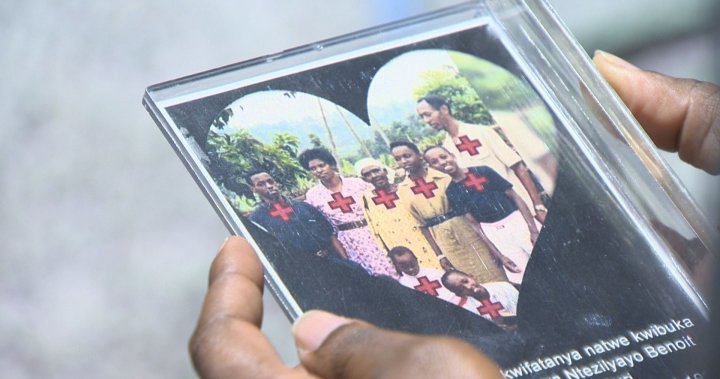The 30th anniversary of the genocide in Rwanda has brought back painful memories for survivors in Montreal. Many, like Odile Sanabaso, are still struggling with the trauma they experienced during the massacre that claimed the lives of over 800,000 Tutsis. Despite the pain, Rwandan groups in Montreal are organizing events to ensure that the victims are not forgotten and to honor their memory. PAGE Rwanda spokesperson Sandra Gasana believes that sharing their stories can prevent others from experiencing similar atrocities and is considered a contribution to society.
Survivors like Philibert Muzima are finding it difficult to pass on their stories to their children while still dealing with their own trauma. Muzima, who lost several family members during the genocide, is writing a book to share his experiences with his children when they are older. Sanabaso, on the other hand, struggles with how to approach the topic with her young children, fearing that it may lead to anger and resentment as they grow older. The challenge lies in transmitting the memory without passing on trauma and hatred.
Susan Solomon, co-director of the documentary Après Coup, notes a common experience among survivors of the Holocaust and the Rwandan genocide – the absence of graves for their loved ones. This void shapes their lives and pushes them to build their future around the emptiness left by the loss of their families. Some survivors believe that a memorial should be built in Canada to honor the victims of the Rwandan genocide. Muzima and Sanabaso advocate for a memorial where survivors and non-survivors can come together, creating a space for remembrance and unity.
Sanabaso emphasizes the importance of Canada acknowledging the experiences of survivors like herself, who are Canadian citizens with a history of trauma. She believes that building a memorial in Canada would show solidarity and support from the country, helping survivors carry the burden of their past. She compares her situation to that of First Nations communities in Canada, who also carry the weight of historical trauma and seek recognition for their experiences. A memorial in Canada would symbolize the country standing behind survivors and recognizing their pain and resilience.
The efforts of Rwandan groups in Montreal to commemorate the genocide through events and activities reflect a desire to ensure that the memory of the victims is preserved. Despite the ongoing pain and trauma experienced by survivors like Sanabaso and Muzima, they are committed to sharing their stories in the hope of preventing future atrocities. The proposal for a memorial in Canada for the Rwandan genocide is seen as a way to honor the victims, provide a space for remembrance and unity, and acknowledge the experiences of survivors who carry the burden of their past. Building a memorial could also serve as a symbol of support and recognition from Canada, helping survivors feel that the country stands behind them in their journey of healing and remembrance.













